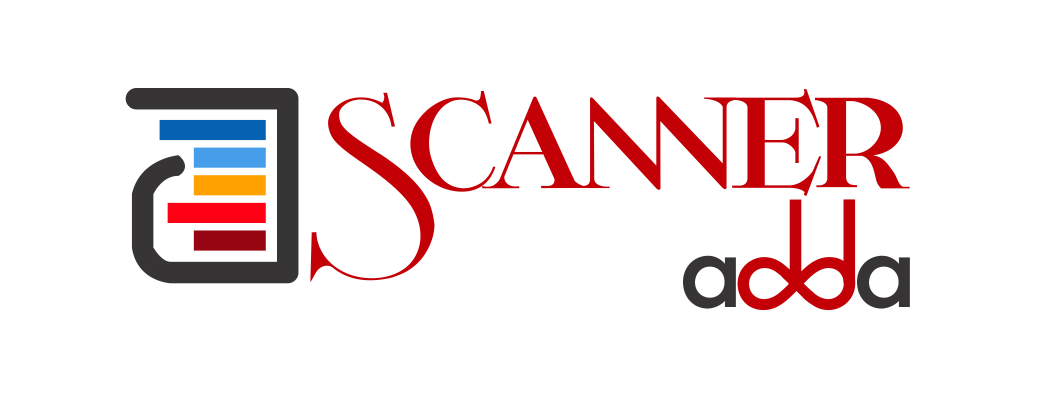If you have an interest in establishing a solid career path in the fields of finance, accounting, and management; the CMA Exam is one of the first steps in starting that career path. CMA is the abbreviation for Cost and Management Accounting coding program that allows students and professionals to gain an in-depth understanding of cost control, budgeting, analysis, and business strategy.
In this article by scanneradda, we explain everything you need to know about the CMA exam from its format to its impact and how to prepare.
Levels of the CMA Course
The CMA program is divided up into three levels, each of which has a specific focus. The three levels of a CMA program is:
1. CMA Foundation
2. CMA Intermediate
3. CMA Final
Let's take a look at each level of the CMA program.
CMA Foundation
The CMA Foundation is the entry level of the CMA program. It is suitable for students who have completed 10+2 (or equivalent to it).
The CMA Foundation will focus on developing the students' basic comprehension of accounting, business laws, mathematics, and economics.
It consists of four papers:
1. Fundamentals of Business Laws and Business Communication
2. Fundamentals of Financial and Cost Accounting
3. Fundamentals of Business Mathematics and Statistics
4. Fundamentals of Economics and Management
The CMA Foundation is a good way to help students learn the fundamentals needed for clearing the higher levels of the CMA program.
CMA Intermediate
Upon successful completion of the CMA Foundation level, students may proceed to the Intermediate level (CMA Intermediate stage) where there is an in-depth study of areas covered in the Foundation level, especially cost accounting, taxation, financial accounting and company law.
The Intermediate level is divided into two groups.
● Group 1 covers Financial Accounting, Direct Taxation, Laws & Ethics, and Cost Accounting.
● Group 2 covers Operations Management, Strategic Management, Cost & Management Accounting, and Indirect Taxation.
The focus of the Intermediate level is on practice, and here students practice CMA Inter solved papers, mock tests and case studies for better time management and accuracy.
CMA Final
This marks the last level of the CMA course and covers the advanced levels of learning in strategic management, corporate finance, and decision-making.
Like Intermediate, this is offered in two groups:
Group III consists of Corporate Financial Reporting, Strategic Financial Management, Advanced Direct Tax Laws and Strategic Cost Management.
Group IV consists of Cost Audit, Corporate Laws, Business Valuation and Strategic Performance Management.
Upon the successful completion of the CMA Final and the necessary training, the student will then become a qualified Cost and Management Accountant.
CMA Course Duration
The time it takes to complete a CMA course is totally based on a student’s ability to clear all the levels. In an optimal scenario (eg, non-part time, and no breaks in exams), we estimate a student can complete all levels in approximately 3 to 4 years.
Preparation time for each level is about 6–8 months of focused study before taking the exam.
Syllabus Overview
The CMA syllabi targets the application of practical learning and conceptual knowledge. The main topics are:
● Cost Accounting and Management
● Financial Reporting
● Business Laws
● Economics and Statistics
● Direct and Indirect Taxation
● Strategic Management and Performance Management
The syllabi focus on the theoretical and practical understanding of the content specifically, for finance and cost control.
Career Prospects After Completing CMA
The CMA degree will open up multiple career options in India and overseas. Some examples could be:
● Cost Accountant
● Financial Analyst
● Internal Auditor
● Management Consultant
● Budget Analyst
● CFO or Finance Manager (with added work experience)
Cost and Management Accountants (CMAs) can work in manufacturing, consulting, government offices, and globally. CMAs may start their own individual practice after meeting the requirements set by ICMAI.
How to Prepare for CMA Exams
Preparing for the CMA exam requires commitment and effort. Students should:
● Clarify the exam syllabus.
● Study from the official ICMAI reading materials and books.
● Plan a timetable and follow it daily.
● Revise regularly and cover past papers.
● Practice management of time under exam conditions.
Clarity of concepts and regular revision are the secrets to success.
Study Resources and Material
In most cases, students would use a mix of official study material from ICMAI and simplified CMA combo books for added clarity. These books include examples, pictures, and practice questions that will help enhance problem solving skills.
To help you assess your knowledge, it is also a good idea to work through sample papers and mock tests for reviewing your knowledge.
Why Consider a Career in CMA?
CMA is not just about accounting — rather it’s about management, cost management, and strategy. It allows you to understand how financial data drives decisions and can maximise profitability.
The world is moving towards a more global economy where businesses require professionals who can navigate the balance between being cost-effective and ensuring performance. This is where the role of the CMA is strategically put in place.
The demand for cost and management accountants continues to grow in India and internationally.
Conclusion
When you take the CMA exam, you are on a path to an esteemed and fulfilling career in finance and management. The exam integrates theory, application, and analytical knowledge. It is one of the better qualifications a student could seek to work in a commercial or consulting capacity.
For students who are doing this for the first time, it’s important to start early and stay on a consistent and disciplined study schedule, and focus on understanding concepts rather than memorization (Although memorization may be required at some point).
Although the CMA process will seem long, you will ultimately be successful if you are dedicated, patient, and you have the right level of support.
As scanneradda always says to students — your persistence and disciplined study approach will ultimately be the two distinguishing characteristics to becoming a successful and functional Cost and Management Accountant.










